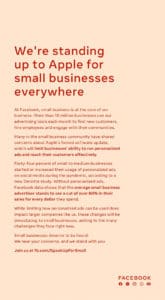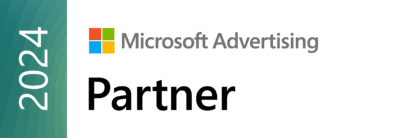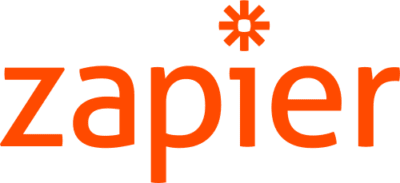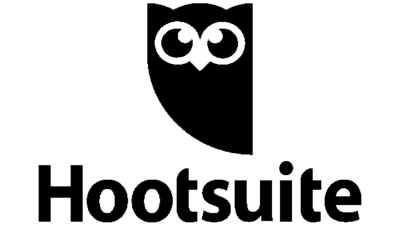iOS 14 and Facebook’s Response – What Advertisers Need To Know
What did Apple announce?
Apple has announced that various iterations of iOS 14 will require application software to receive permission from users to track them – meaning this will become an opt-in system. People will have to actively, knowingly agree to let Facebook have access to their data. Apple is planning to do this in a seemingly integrated fashion with the options of “Allow Tracking” or “Ask App Not to Track”.
Apple’s developer site has lined out examples of tracking, including:
“Displaying targeted advertisements in your app based on user data collected from apps and websites owned by other companies.”
How did Facebook react?
If you have been using the Facebook ads platform at all over the past month (or if you employ someone that does), you are likely aware of the social giant’s concerns about changes that Apple is enacting regarding tracking permissions within iOS 14.
You may have seen this statement from Facebook:

Or you may have been directed to this post.
Or you may have seen ads in national news publications

Advertisers have also been invited to webinar sessions discussing “Our Stance on Apple’s iOS 14 Policy Requirements and Guidance to Help You Plan”
Although no one knows exactly what the full impact of these changes will be, it seems that Facebook is more than a little concerned as they likely stand to lose revenue.
What does this mean for advertisers?
In short, the main change for lead generation campaigns using one pixel and little need for tacking more than 1 or two specific conversion events will be the potential effectiveness of Facebook’s Audience Network on the mobile web. Delivering targeted ads to relevant users (think lookalike and retargeting audiences) will no longer be as precise. Also. Because of the conversion windows are changing, potential audience size could diminish as well.
According to statista.com, 45% of smart phone users in the United States are on apple devices. Coupled with the percentage of overall site traffic skewing highly mobile for many of our clients, this is no small margin.
The most likely immediate result will be a reduction in lead volume from Paid Social campaigns. If targeting is less effective, the amount of waste within budgets is likely to rise. This could also limit the ability for campaigns to exit learning phases as conversion event volume may not meet Facebook’s required levels.
Odds are, this is exactly why Facebook has positioned their reaction as “Standing Up For Small Businesses”.
What can be done now?
- Get your domain verified. Although we aren’t exactly certain as to why Facebook is suggesting this to be important, it is a quick process and probably not a bad idea anyway.
- Stay tuned. While we do not yet know how optimization in Facebook will be affected, it is very reasonable to assume that reported conversion data will decrease. That being said, there are still ways within the lead capture process (UTM codes) to see proper sourcing on the back end. More details will be shared across the industry as these changes take place.
- Always be testing. These changes and even more are likely to occur in the future – especially around consumer privacy. The best thing to do is to continue finding new and different ways to see what works best and optimize your overall channel mix to meet your needs.
Recent Posts
- Diversifying Enrollment: Strategies for Attracting a Wide Range of Students to Private Postsecondary Institutions September 14, 2023
- XR and the Transformation of Online Education August 24, 2023
- Key Takeaways From the 2023 State of Social Media Report July 25, 2023
- SEO: Why It Stays Important and How to Get Key Decision Makers Onboard June 22, 2023
- Revolutionizing Content Generation: Harnessing AI June 9, 2023










